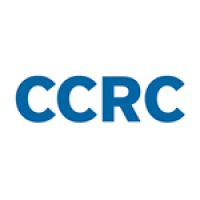By Ellen Wasserman and Amy E. Brown
Online learning in higher education increased significantly during the COVID-19 pandemic and has now expanded access for many students, including students of color, students from low-income backgrounds, first-generation students, and adult learners, who may find it difficult to attend college classes in person. In fact, 59% of students were taking some or all of their courses online in 2022 in U.S. public two-year colleges, according to the Department of Education. Although the rise in online coursetaking has benefits in terms of convenience and flexibility for students, it is not without challenges, and colleges are struggling with the best way to support students in these courses.
Two new reports from the Postsecondary Teaching with Technology Collaborative (the Collaborative) offer insights into institutional and classroom approaches for supporting students in online courses, particularly STEM courses. The Collaborative, led by SRI Education, the Community College Research Center, and Achieving the Dream, conducts research in partnership with nine broad-access colleges and universities and has developed an evidence-based framework that describes how motivational, metacognitive, and applied learning processes work together as students manage their online learning. Collectively, we call these processes self-directed learning (SDL) skills and mindsets.
Both of the Collaborative’s new reports—based on a study at seven community colleges and two broad-access four-year universities—share examples of how institutions and instructors can support students’ SDL skills to manage online learning. The first focuses on institution- and classroom-level supports for online teaching and learning based on interviews with administrators, staff, and faculty. The second (a research brief) provides a closer look at faculty teaching practices that support SDL skills and mindsets in the classroom.
Access the reports below
SDL Supports Can Address Challenges in Online Courses
Learning online can be isolating for students, and they can be overwhelmed by the need to manage some or all aspects of a course independently. This sometimes leads to disengagement that may impact students’ sense of belonging and self-efficacy and could negatively influence course completion. To help students build a sense of belonging and support motivation, some faculty in the study created videos to introduce themselves to their students and asked students to introduce themselves to their peers using a discussion board or video post. Some faculty also used low-stakes assessments in the beginning of a course to help build students’ confidence.
The Collaborative’s research underscores many of the demands of online learning, such as time management, that can impact student success. Asynchronous courses in particular are a challenge for many students because, instead of offering built-in class times and deadlines, they require students to work independently. Faculty members told us that these challenges often resulted in poorer work quality and fewer opportunities for deep learning, with students rushing to complete assignments at the last minute. To help students think about the learning process and improve their time management, faculty asked students to set goals for the course and to use a time tracker to plan when they would do coursework. Students then reflected on their progress at several intervals, especially around exams. Instructors also supported applied learning skills by inviting students to share study strategies with each other, teaching students note-taking methods, scheduling one-on-one check-ins, and providing links in the course learning management system to tutoring and other institutional resources.
Institutions Can Do More to Support SDL in the Classroom
The Collaborative’s research found that colleges offer many types of support for online learners, including new student orientation, student success courses, affinity group programs for targeted student groups, and online course orientations. However, there are fewer formal, institution-wide supports delivered directly to students within disciplinary online classes. Notably, a lot of the beneficial supports provided are front loaded in students’ college careers; in some instances, students engage in them before they begin taking courses, where the skills they have learned can be applied and practiced. What’s more, our analysis indicates these existing supports focus more on the applied learning skills described in the Collaborative’s framework and less on the motivational and metacognitive processes that we argue work best together in a self-reinforcing cycle. Though our research points to the need for classroom-based skill building, we found that faculty use strategies to reinforce SDL skill development inconsistently. Many faculty in the study did not have information about how to support SDL skill development and felt that they did not have time for it within their course activities. Yet faculty also reported frustration with students’ lack of engagement in online courses, which emphasizes the need for faculty professional learning about SDL development strategies.
The Collaborative’s research findings will form the basis of an evidence-based instructional model and professional learning program that will help higher education leaders and instructors adopt teaching strategies and effectively use online course tools to help students develop self-directed learning skills. In the next phase, the Collaborative will develop and test the instructional model before making it available to colleges and faculty nationwide. To follow the progress of the Collaborative’s work to improve student support in online learning, please subscribe to our newsletter.





